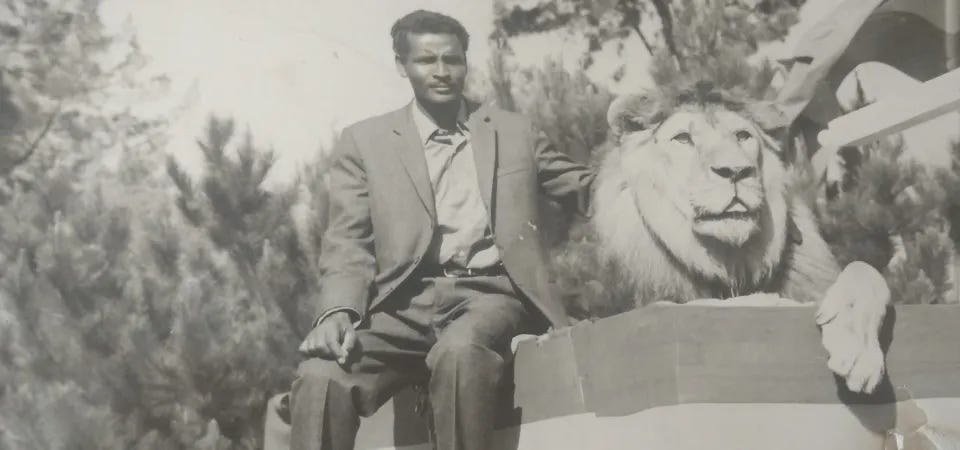I’ve never really got on with podcasts. I’m not an early, mid or late adopter. Partly this is because I don’t have much cause to listen to them: I don’t travel on buses much (where I’d have to listen to something as I can’t read more than a word or two without throwing up). I don’t usually listen to anything when I’m running, as I prefer the sounds of The Outside. Recently I did start listening to The Rest is Politics, because it turns out listening to a podcast on a winter road run on a dark night makes the miles go quicker. I enjoyed TRIP for weeks, and discovered that an episode and a Question Time covers about six miles. What I liked about TRIP was that it was two equals talking. There seems to be a thing in podcasting of having an Expert and a Funny Foil. Except the Funny Foil is often not funny. So my relationship with podcasts currently is intermittent: I try one and it annoys me so I stop. If you live in Leeds and have encountered a woman running at night who suddenly says loudly FOR FUCK’S SAKE and pulls an earpiece out, sorry. (I went off TRIP because I couldn’t quite take another “well, Tony said” reference.)
This happened last week. My colleague Callum always has headphones on and so I have taken — probably annoyingly — to asking him what he’s listening to, because the first time I did this, I was expecting the answer to be “thrash metal” (as Callum plays in several punk bands). But it was “a medieval history podcast about how we’re not so different.” I finally got round to listening to this — We Are Not So Different — on a run last week. I chose an episode on mediaeval hygiene because I would, and I got through a couple of miles before the FFS moment.
It was an Expert and Foil set-up, except the Expert was also trying to be funny. Or edgy or something. It was a conversation about bathing and how mediaeval people were actually rather clean, and I was running along, mildly interested, when the Expert said, when she was explaining that baths weren’t that frequent, “I mean, water is fucking heavy.”
And I stopped listening then. It was a strong reaction and I had to question it. I’m not a prude. I like swearing when it’s necessary. I have my limits: never the c word and never the word for a female dog when used for women even when it’s used by women. For fuck’s sake is a great phrase when used appropriately. I’m never going to stub my toe and shout “sugar.” Swearing has a place. But I don’t think that place is randomly in the middle of conversation about mediaeval bathing, just to sound counter-cultural or modern. Swearing’s place in language is usually to express emotion. It is not just a substitute for adverbs.
I did extensive polling to see whether my reaction was reasonable. That is, I asked my partner. He was of similar mind, having abandoned a podcast on film that quickly descended for no apparent reason into “effing and jeffing and loads of the c word.” I’ve enquired of myself: is it a generational thing? Is it simply that I’m middle-aged? I’m thinking about this at the moment as I’ve just reviewed Victoria Smith’s new book “Hags: The demonisation of middle-aged women”, for the Spectator. The review hasn’t been published yet but here is a wee spoiler: it is VERY good and VERY true.
Back to effing and blinding and jeffing. I had cause to think about taboo language when I was writing The Big Necessity. Of course me and my editors had to discuss what language was appropriate for the title and the cover. Not "shit,” we concluded, as that might put people off from picking up the book. In the end, we had a solution that I thought was imperfect, which was to use the euphemism “human waste.” It is imperfect, obviously, because human shit is not waste, but can be useful fertilizer, fuel and medicine.
But the power of our taboo words is modern. Church words used to hurt much more. The diminished power of “damn” explains why the climax of Gone With the Wind is always a bit of a puzzle. When church influence weakened, the products of the body—which Puritan influence has successfully turned into a foul, shameful thing—stepped in instead to give us our worst words.
I did a talk at a TED summit in 2019 about swearing. It was only three slides:
The windfucker is now better known now as a kestrel. The shitecrow is ardea cinerea, the grey heron. Language evolves and retracts and expands and diminishes, as it should. Perhaps we look back at the shitecrow and windfucker and think these words are signs of primitivity and that we are superior to them. But I see the shitecrow and think, how rich and extraordinary language is. English, it’s said, has 800 expressions for copulation and 1200 for vagina. Language needs registers, where words are judged acceptable or impolite, and that changes.
I respect language and its registers, but I will also push them. I have had to learn which linguistic taboos should be bent, and which should be left alone. How to persuade without being offensive, when your subject is considered impolite conversation. After my first TED talk, Chris Anderson gave me some sound advice. He said, “Rose, great talk. But less ‘shit’ and smile more.” I learned to balance. To push, but the right distance.
In conclusion, I am probably wrong to take exception to fucking heavy water. In a way I’m glad of that because without shouting at podcasts my winter road runs would be far less interesting. And also, with such disturbing language policing these days — Roald Dahl is only the latest — the last thing I want to be is some kind of censor-tivity reader/listener.
Anyway, read this about the science of swearing, because it is far more lucid and comprehensive than my brief ranting.
And my last slide? It was an illustration of the consistently hilarious fact that many millions of English-speaking, non-French-speaking people routinely use a rude word to describe where they live. Cul-de-sac does not mean bag’s bottom or even bag’s rear-end, but bag’s arse. It is as low as you can go, when it comes to bottom language. I have never understood why French people living here are not routinely bent double at seeing Lavender Street Bag’s Arse and similar all over the place.
*Please do suggest podcasts that are not Expert and Funny Foil and will not have me shouting at the late-night walkers of north Leeds.*
Heroic animals of the week: The Three Lions
No war this week. No animal got stuffed. And I don’t know their names. Most likely, in any case, they are dead. Anyway, they were three lions who in 2005 lived in Ethiopia, about 350 miles southwest of Addis Ababa.
In early June 2005, seven men abducted a 12-year-old girl from her village. Their aim was to force her to marry one of them. The girl was held for a week, beaten and probably worse. Then, somehow, she met the lions.
The Ethiopian lion is a national symbol in Ethiopia. The lions are known for their distinctive black manes, and for being smaller than lions elsewhere.
Emperor Haile Selassie styled himself The Great Lion of Judah. Actually his full title was “By the Conquering Lion of the Tribe of Judah, His Imperial Majesty Haile Selassie 1, King of Kings, Lord of Lords, Elect of God.” Modest.
And the 1 birr coin (currently worth a penny) still features this:
Recently, researchers at the University of York discovered that the Ethiopian lion — also known as the Addis Ababa lion — is genetically distinct. It is also under serious threat. In 2005, when the Three Lions did their thing, there were about 1000 in the wild. But lion pelts sell for good money, and now there are only a few hundred lions left, including 20 or so in Addis Ababa zoo, descendants of the lions kept by Emperor Haile Selassie for his personal menagerie. One was Mekuria, a favourite pet — though never properly tame — who, according to this Ethiopian Observer piece, “was so popular among the members of the Imperial Guard that they named their football team after him.”
North African Barbary lions and South African Cape lions have already become extinct outside zoos.
Back to 2005. Somehow the girl found the lions, and then villagers found her, being guarded by them. The Associated Press interviewed Sgt. Wondimu Wedajo, over the phone from the provincial capital of Bita Genet. “They stood guard until we found her and then they just left her like a gift and went back into the forest,” Wondimu said.
This extraordinary behaviour may have a good reason, said Stuart Williams in the same piece. The girl’s crying may have sounded like a mewing lion cub. Presumably though the lions had functioning eyes and noses and knew the difference. Whatever their reason, they didn’t eat her.
In Ethiopia, 70% of marriages are the result of abduction, according to a UN estimate. So it is a fact of life that if you are a young woman or girl in rural Ethiopia, you’re safer with a lion.
Heroic humans of the week
They are dead. They shouldn’t be. Read this New York Times piece about a husband and wife killed side-by-side in the same trench in Ukraine, and fetch a tissue. (You may have to register, sorry, but it’s worth it.) Rest in peace, Taras and Olha, and every other Ukrainian lost to Putin’s vainglorious and murderous war.










Podcasts:
The Rest Is History - both experts and both funny (in my opinion).
Conversations with Tyler - a man with a large brain interviews other intelligent people, intelligently.
Backlisted - books etc.